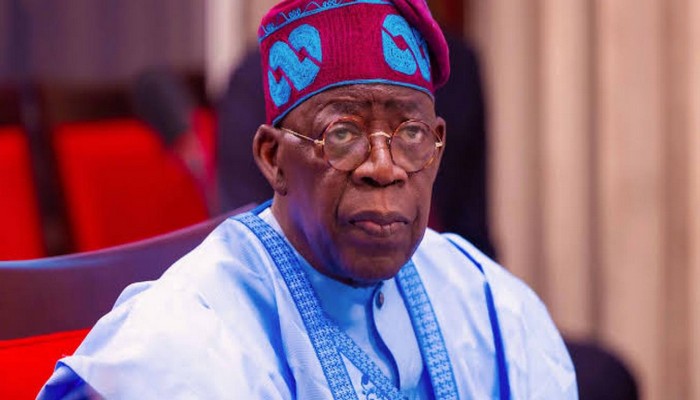President Tinubu’s approval rating drops in second month as concerns about economy grow –Survey
The approval rating of President Bola Tinubu dropped from 45 percent to 35 percent in the second month of his administration, according to a survey.
According to a report by SaharaReporters, the second monthly presidential satisfaction and governance survey which was conducted by the Governance Advancement Initiative for Nigeria (GAIN) shows that 35% rated the performance of the president as satisfactory, with 8% of them rating his performance as “Excellent” (down from 15% the previous month).
According to the survey, 11% rated it as “Good” (down from 15% the previous month) and a further 16% rated it as “Average” (slightly up from 15% the previous month).
The survey was administered from July 29 to August 6, 2023, and is aimed at tracking the sentiments of the Nigerian people regarding the initiatives and policies of the Tinubu administration and providing the unadulterated views of the Nigerian public to their elected officials.
According to Dr Malcolm Fabiyi who coordinates GAIN, the survey was targeted at Nigerians of voting age.
GAIN said over 540 responses were received, providing a margin of error of ±4.2% at a 95% confidence level. It noted that 68.5% of respondents indicated that they voted in the 2023 presidential elections while 51.1% indicated that they had no political party affiliations.
Respondents were drawn from across all six geopolitical zones, both in terms of their places of origin and their locations of residence, the organisers said.
Respondents were provided with a 5-scale question about their rating of President Tinubu’s first two months in office. They were provided with an option of responses ranging from “Excellent” to “Good”, “Average”, “Poor” and “Very Poor”.
Only one of these options could be selected.
The survey shows that there were mixed views among Nigerians regarding the policies of Tinubu’s administration.
For instance, 50.3% of respondents support fuel subsidy removal. But it is down from 54% of respondents who supported it in the administration’s first month in office. Meanwhile, 4.5% of respondents indicated that they did not know enough about the policy initiative, a slight tick upward from 4% the previous month.
Also, 55% of respondents oppose the new student loan policy of the government. The policy retains its position as the least supported policy initiative of the Tinubu government for the second month, with just 37.1% of respondents indicating support.
However, this was a slight uptick from the 32% of respondents indicating support for it in the previous month. Meanwhile, 55.1% expressed a clear lack of support for the policy, up from 52% in the previous month.
The survey shows that 71% of respondents were supportive of the policy allowing old and new naira notes to be used as legal tender, up from 60% in the previous month.
And regarding the elimination of the dual exchange rate, 52% of respondents expressed support for it. The poll noted that the majority continued to support the policy, although the level of support dropped to 51% in the second month versus 60% in the first month.
GAIN said respondents were presented with a list of 10 national priorities drawn from the manifesto of the ruling All Progressives Congress as well as policy pronouncements that have been made by the administration.
The respondents selected security, electricity and healthcare as their top three priorities. The first priority area was security, followed by the provision of electricity in second place, while healthcare ranked third.
Respondents were also allowed to provide their own list of priorities as well as commentary on the listed priority areas.
Regarding the economy, respondents were provided with five statements to express their views about the economy and they were required to select one of the options – I am optimistic about the economy; I feel positive about the economy; I am very concerned about the economy; Nothing is being done to create jobs and I see encouraging signs for jobs and employment.
According to the poll results, 44.20% are very concerned about the economy, 30.20% picked ‘Nothing is being done to create jobs’, 12.71% said they were optimistic about the economy and 10.13% said they were positive about the economy. Only 2.76% of respondents said they saw encouraging signs for jobs and employment.
Basically, three (3) of the views expressed positive sentiments, while 2 expressed negative sentiments about the economy and/or the government’s plans to address it. Overall, 25.6% of respondents expressed positive sentiments about the economy while 74.4% expressed negative sentiments.
When asked for their views on what they believed a fair and sustainable minimum wage value should be, a “clear majority of 99% indicated that it should at least be at, or above N50,000 per month”. 84% indicated that it should be at least N100,000 per month, 47% indicated that it should be at least N150,000 per month, and 30% indicated that it should be at least N200,000 per month.




